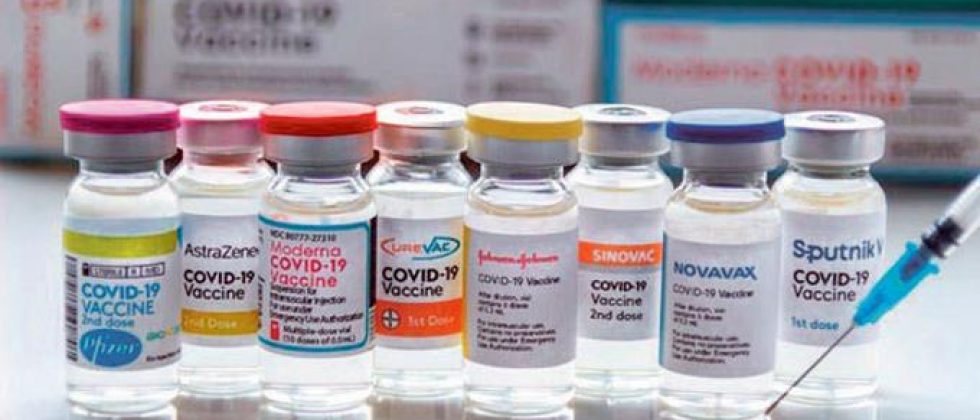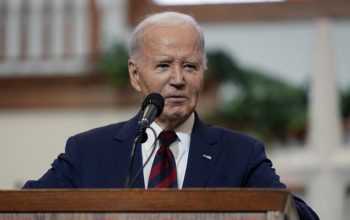news
“The Pandemic Paradox”, an article by Dr. Leonel Fernández
April 20, 2021
Due to the COVID-19 pandemic, in addition to the enormous and irreparable loss of human life in 2020, the world economy plummeted to its lowest levels since World War II. Numerous companies closed their doors. Millions of workers lost their jobs. World trade came to a virtual standstill, investment plummeted and, most concerning, poverty levels jumped again.
Future projections were bleak. However, according to recent reports from the International Monetary Fund, other multilateral organizations and regional development banks predict that for this year, 2021, a global economic growth of six percent is expected.
During the first quarter of this year – without losing sight of statistical distortions – the People’s Republic of China achieved an explosive growth of 18%, compared to the same time period in 2020. Similarly, although on a smaller scale, the U.S. economy has also improved, through the increase in the number of jobs, trade and the stimulation of mass consumption.
Naturally, not all countries will have the same results as those reached by the world’s two main economies. Indeed, it is believed that many developing economies will take time to reach the growth levels they had before the outbreak of the pandemic.
However, this impressive reactivation of the economy in certain geographical poles has been mainly due to the exorbitant increase in public spending, through fiscal stimuli and the monetary policies introduced by central banks. And, most importantly, by the rapid discovery of the vaccine and its application.
The levels of the injection of capital by the public sector to strengthen the economy´s recovery efforts, has reached unprecedented levels in history. For this reason, it is believed that it will have positive effects on the world´s different economies.
In the case of the Dominican Republic, for example, this effect is noticeable due to the dramatic increase in remittances which, this past March, reached over US$900 million.
However, certain sectors fear that although such a volume of investment contributes to the growth of the world economy, at the same time it could contribute to inflation levels, or impact of higher prices in the main staple products.
Similarly, reference is made to the fact that in order to achieve these high levels of public intervention the volume of public debt has increased. Therefore, in order to avoid a future macroeconomic destabilization, it will be necessary to carry out fiscal reforms in different parts of the world. However, an institution such as the Organisation for Economic Co-operation and Development (OECD) does not recommend carrying out these reforms at this point in time.
Vaccine Inequality
If one of the fundamental reasons for this unexpected economic growth is essentially due to the vaccination process underway worldwide the truth is, however, that this vaccination process – so far – has been unequal.
The reason for this situation of disparity is explained by the protectionism or nationalism that is being carried out by the most powerful economies regarding the access and use of the vaccine. Today, for example, the 10 richest countries on the planet have access to 75% of all vaccines, while the 50 poorest nations only have had access to 0.1%. Obviously, such a level of inequality is unacceptable. A global tragedy such as the Covid-19 pandemic requires that the vaccine not be considered just another commodity, but rather as the Secretary General of the United Nations, Antonio Guterres, considered it: as a global public good.
Considering it as a global public good, there should not be any type of barrier or restriction to its access. But, aside from hoarding techniques used by the most important developing economies, there have been problems in the capacity to produce the vaccine, as well as difficulties in the logistics used for its distribution.
In order to meet the global demand for the vaccine, it would require 15 billion doses in order to reach the goal of a fully immunized planet. At the current production rate, this would mean that meeting that goal would take us to 2022 or 2023. In short, this represents a long stretch that could interfere with the success of the economic and social recovery process.
For these reasons, the idea has been raised to liberalize the patents in the production of the vaccines. In no way would this imply a violation of intellectual property rights. Through this possibility, countries equipped with laboratories, technical equipment and qualified scientific personnel could generate the necessary vaccines for their respective national use.
A favorable international debate has been raised around this idea. A temporary exemption from the intellectual property rules of the World Trade Organization (WTO) has been considered feasible during the Covid-19 pandemic, as has been suggested by such countries as South Africa and India.
The Variants
The inequality in gaining access, and the slow process in the application of the vaccines, not only represents a problem of inequity or social inequality but, at the same time, a dangerous risk in the face of the mutation processes that the virus has been experiencing.
Indeed, epidemiologists recognize that all viruses tend to mutate. New variants open the way for these mutations which, in turn, tend to multiply.
In the specific case of Covid-19, several variants have already been identified. However, so far there are three that are the most identifiable and most fearsome: the British, the South African, and the Brazilian variants. It is estimated that these variants circulate faster than the original virus, are much more contagious, and contribute to higher fatality rates.
Their appearance has given rise to new waves or outbreaks of the epidemic. According to the director of the World Health Organization (WHO), Tedros Adhanom Ghebreyesus, cases provoked by the virus are approaching the highest rate of infection seen so far during the pandemic.
Because of these new outbreaks, governments have had to order new lockdowns, border closures and restrictions on individual freedoms. Due to these measures, the economy once again will slow down and will prevent the reactivation process from continuing.
Therefore, what the current scenario poses is a fast-track race between the ability to apply the vaccines at a global level, and the emergence of new variants.
If the variants win the race, a nightmarish and uncertain scenario would arise and, most probably, the vaccines would fail and be ineffective in guaranteeing the containment of the virus and, consequently, the immunization of the population.
That is the paradox of the pandemic. On the one hand, we have made progress in combating the epidemic with the different vaccines currently available, and in sponsoring a rapid economic reactivation through the application of bold policies to increase public spending.
But, on the other hand, the concentration of the largest number of vaccines in a few countries and the competition between the great powers in the geopolitical sphere in the conquest of influential spaces through the distribution of the drug will delay or slow down the inoculation process.
Under this situation, the capacity for full recovery is frustrated both for the health, and the economic and social sectors. In reality, the only way to effectively face the multiple challenges generated by the Covid-19 pandemic is through the solidarity and cooperation of different actors, worldwide.
In the face of this global crisis, composed of multiple dimensions, there can only be one global solution: the involvement of everyone at the same time.






